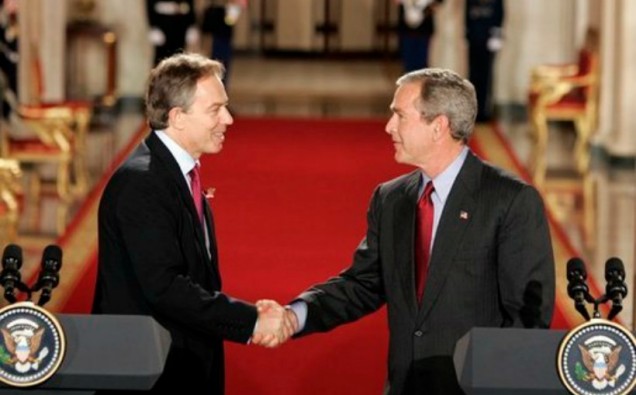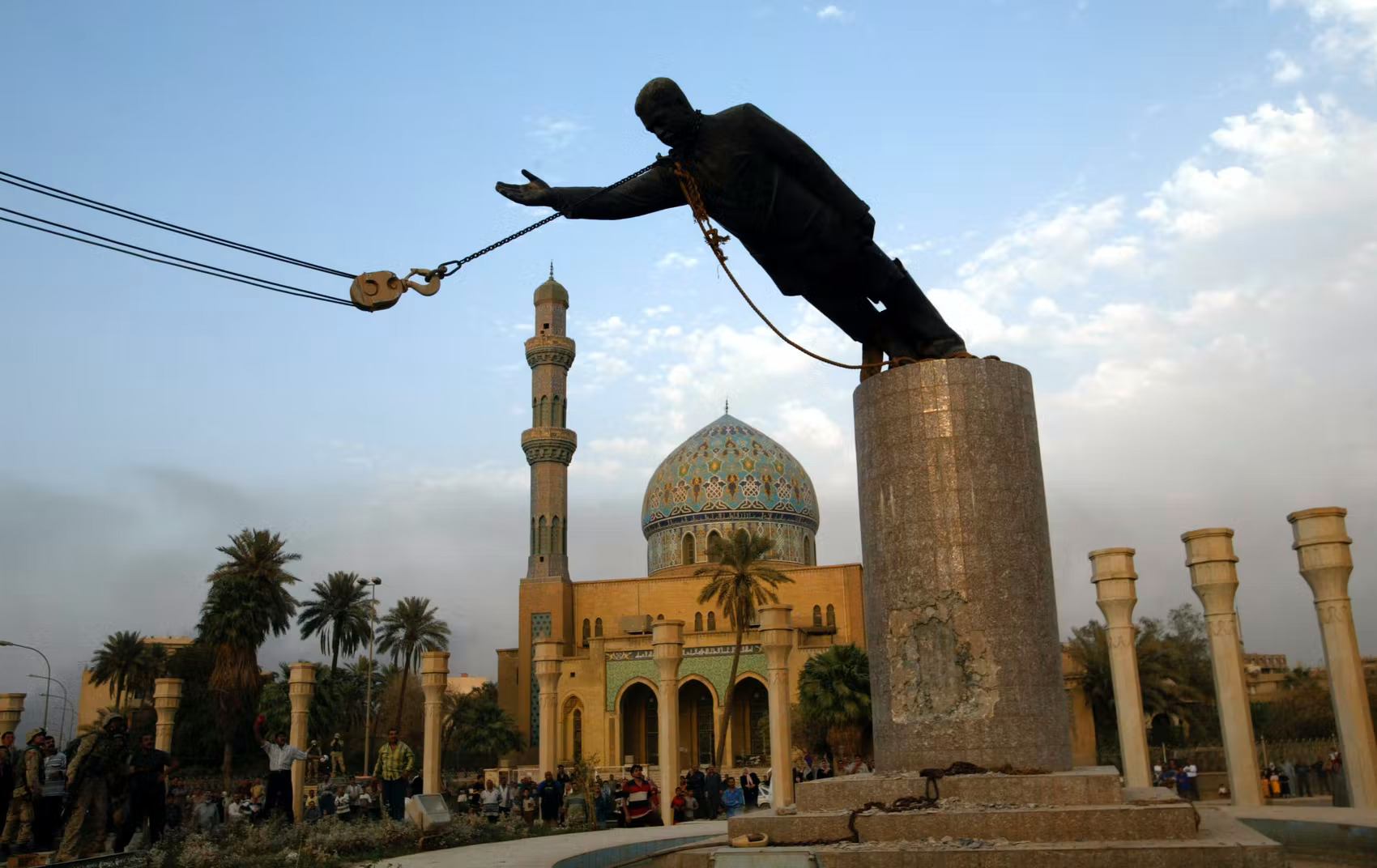
Former British Prime Minister Tony Blair admitted the 2003 Iraq invasion has partly contributed to the rise of ISIL (also called ISIS or Daish) but hinted that creation of the feared militant group was more of an outcome of events in Syria than in Iraq.
In an interview with CNN aired on Oct. 26, Blair who sided with President George Bush over invasion of Iraq, said that intelligence reports were incorrect in calculating the nature of Iraq’s Weapons of Mass Destruction program which provided the basis for the war .
Over the last decade, Blair has faced international and domestic criticism for his government’s Iraq policy, as the Arab country remains a center of conflict and instability in the region.

Photo: By Unknown U.S. military or Department of Defense employee [Public domain], via Wikimedia Commons
“I think there are elements of truth in that,” Blair retorted when asked to comment that many people blame invasion of Iraq as the principal cause of the rise if ISIL. “But, I think we’ve, again, got to be extremely careful otherwise we’ll be misunderstood what’s going on in Iraq and in Syria today.”
He went on to say that ISIL actually came to prominence from its base in Syria and not in Iraq. “And that leads me to the broader point, which I think is so essential when we’re looking at policy today, which is we have tried intervention and putting down troops in Iraq. We’ve tried intervention without putting in troops in Libya. And we’ve tried no intervention at all, but demanding regime change in Syria.
“It’s not clear to me that even if our policy did not work, subsequent policies have worked better.”
The ISIL, made up of frustrated Iraqi Sunni population and former soldiers, controls large swathes of Iraqi and Syrian territories. The group has unleashed a wave of terror through beheadings of citizens, journalists and minorities in Iraq. Iran, Iraq’s neighbor, and has also sent its militant forces partly to expand its influence and partly to fight the ISIL. Analysts say Iranian interference and hold on Baghdad, the ISIL militancy and lack of progress towards fostering sectarian harmony have paralyzed Iraq, which has one of the biggest oil reserves in the world.
A report by The Washington Post on Oct. 27 said President Obama’s most senior national security advisers have recommended moving U.S. troops closer to the front lines in Iraq and Syria.
The move, if realized, would signal a more intense involvement of American troops in the long-running conflict, after Obama announced last week to extend engagements of troops in another troubled spot of Afghanistan. The Middle Easter situation has been further complicated by Russian military involvement in Syria.
“What Iraq teaches us, however, is that when you do remove one – a regime from power, you – have to – and this is probably the biggest acknowledgement based on the 2003 intervention, you have to be aware of the forces that will be unleashed after that,” said Matthew Doyle, a former spokesman for Blair.
“And we’ve seen that in Iraq, We’ve seen it in Libya. And, obviously, we’re seeing it an a different form in Syria today.”
While Blair apologized for the Iraq Intervention, he said removing Saddam Hussein was the right thing to do. “…I find it hard to apologize for removing Saddam. I think even from today in 2015, it is better that he’s not there than that he is there.”
He also remarked : “Of course, you can’t say that those of us who removed Saddam in 2003 bear no responsibility for the situation in 2015. But it’s important also to realize … that the Arab Spring which began in 20111 would also had its impact on Iraq today.”
The term Arab Spring refers to democratic uprisings that arose independently and spread across the region in 2011. The movement originated in Tunisia in December 2010 and quickly took hold in Egypt, Libya, Syria, Yemen, Bahrain, Saudi Arabia, and Jordan.














